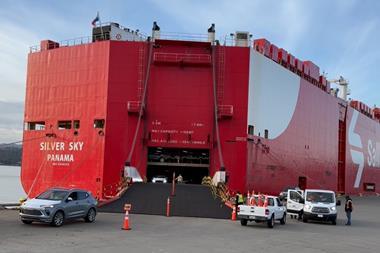 Logistics provider DB Schenker has put two digitally networked trucks into service in a platoon trial on German roads in a project involving MAN Truck & Bus and Hochschule Frensius University of Applied Sciences.
Logistics provider DB Schenker has put two digitally networked trucks into service in a platoon trial on German roads in a project involving MAN Truck & Bus and Hochschule Frensius University of Applied Sciences.
The first platoon took to the roads on June 25, travelling from a DB Schenker office in Neufahrn, near Munich, via the A9 digital test field to Nuremberg, in a pilot project funded by the federal government.
“The project marks the start of the automated and networked future of road haulage. Our logistics processes, from ramp to customer, can become safer, more efficient and environmentally friendly,” commented federal transportation minister Andreas Scheuer.
The trucks will conduct regular test runs along the 145km route without any loads until early August. After that, they will make up to three trips a day, with part loads of items such as machine parts, drinks and paper.
“This first use of truck platoons in Germany will set new standards in the logistics market. With this project, DB Schenker is showing what matters to companies all over the world – advancing innovations through new partnerships,” said DB board member for freight and transport logistics, Alexander Doll.
The trial should demonstrate the potential for platoons to maximise safety and use of road space while minimising fuel consumption. The project partners also hope to gain insight into the social acceptability of platoons, as well as into transport policy and infrastructure requirements.
Since the handover of the test vehicles by MAN in February this year and the official start of the collaboration in May, the truck drivers involved have undergone intensive training. The psychological and neurophysiological effects of the new technology on drivers in the platoon will be examined by the Hochschule Fresenius.
Director of the Institute for Complex Health Research at Hochschule Fresenius, Dr. Christian Haas, explained: “It’s obvious that the digitisation of the mobility and transport system is leading to completely new requirements for employees in the industry.”



































